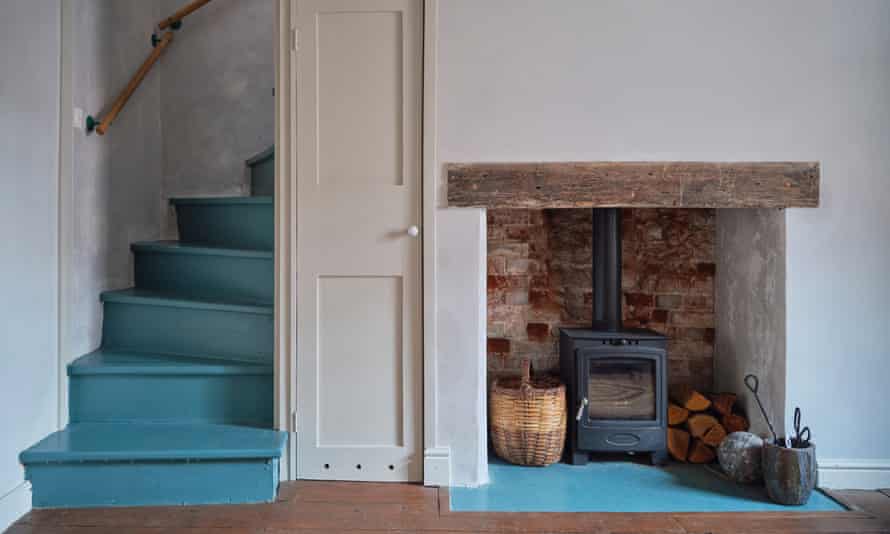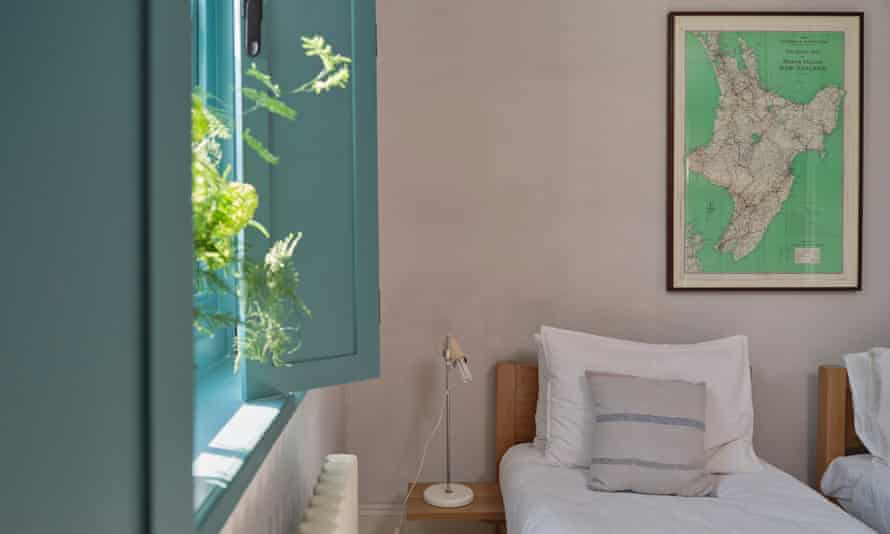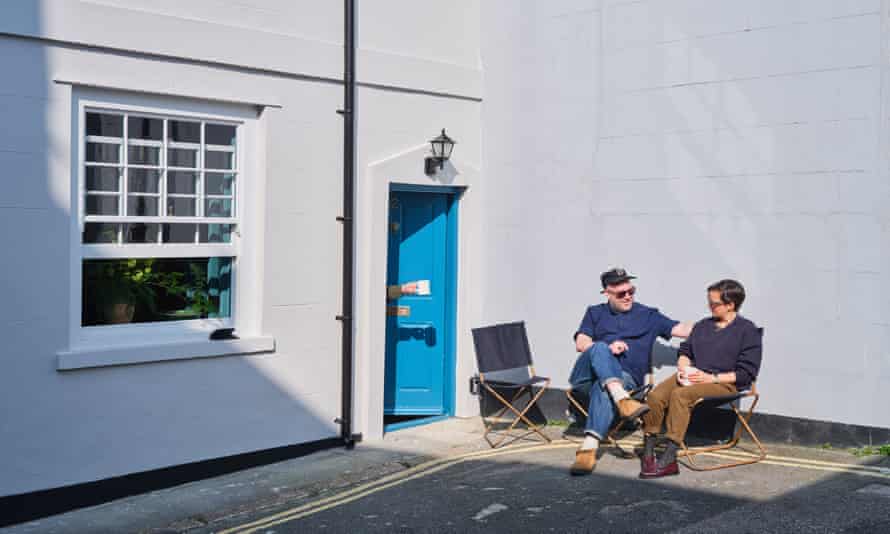
It wasn’t Deal’s beach or pretty back streets that made Miria and Tom Harris want to buy a home there, but the Kent town’s butcher, fishmonger and deli.
“We’d been looking for ages, mostly around Whitstable, but nothing felt right,” says Miria, a garden designer. But she knew the specialist food shops would be important to her chef-restaurateur husband. A bunch of virtual viewings later, they came upon a tiny, Georgian fisherman’s cottage in Deal’s old town, between the beach and the high street with its independent shops.
The house had been rented out for years. “It had been messed about with and was in a sorry state,” says Tom. But many features, including the inglenooks and original staircase, had survived. The stairs wrap around an old ship’s mast that runs up through the house like a spine. “It’s an incredible use of the narrow space: the whole staircase is almost sculptural, and you can see where the lime-and-horsehair plaster has been shaped by another human hand, 300 years ago,” he says.
Renovating a Grade II-listed property comes with challenges. “We were allowed to update the kitchen and bathroom, but there were weird things we couldn’t do, like change the 1990s skirting boards,” says Miria. One of the couple’s main goals was to create a “healthy” home: they avoided “modern” materials such as PVA glue, cement and MDF, using locally sourced timber and lime instead.
“We haven’t interfered with the proportions, the original features or the fabric of the building. Where we’ve had to repair or add, we’ve used things like lime putty instead of gypsum. We wouldn’t have bought a Georgian house if we weren’t interested in engaging, and loving all the old parts,” says Miria.
In the living room, concrete had been laid at some point, with a cheap engineered floor on top; the lack of air circulation had caused damp. “We laid Georgian pitch pine floorboards, with gaps so the air can circulate, and the damp is gone,” says Tom.

Where new features have been added, such as the kitchen panelling and hand rails custom-made by designer David Blair Ross, they give a contemporary nod to existing features. “The hand rails are cylindrical, and oak, echoing the timber mast, while the panelling has similar dimensions to the fragments of existing panelling that survive,” says Tom. “The timber window shutters are simple and unembellished, in a classic Georgian style.”
The couple took the same approach to the paints, opting for linseed- and water-based products and limewash. “It’s all about avoiding plastic-y paints, and allowing the house to breathe,” says Miria. The whole house has been limewashed in “Mallorca”, a pale grey by Bauwerk, which acts as a foil for the colour-blocking the couple have added throughout – each room assigned its own splash of colour.
“The sun comes up over the sea to create an amazing morning light here in Deal, and the colours we ended up choosing reflect the coastal sunrise: teal, coral, orange and yellow. It really connects you with what’s happening on the beach,” says Miria.
As well as being co-owner of the Marksman pub in east London, with a new central London restaurant in the pipeline, Tom is the main cook at home, so had strong views on the kitchen he wanted. He has ditched the fitted kitchen format in favour of a freestanding island and shelving unit by Italian modular kitchen company Fantin. The old inglenook now houses the pantry and white goods, behind panelled doors. The dining area has a bespoke timber table, again by David Blair Ross, with a banquette designed by Miria and made by a local joiner. “We wanted an open-plan social space. For us, food and dining are central components of home,” says Tom.

Many houses in Deal’s old town have no outdoor space, but this one has a small courtyard garden. “It makes such a difference,” says Miria, “although the beach is our main outside space.”
Miria’s father was a New Zealander and she was fascinated to discover that on returning from his antipodean voyage, Captain James Cook went ashore at Deal, bringing countless new plants collected by a group of passionate botanists on board. Nodding to her own heritage and Deal’s history, Miria has planted vintage and handmade pots with species from the southern hemisphere, including tree ferns, Dicksonia antartica, grasses and a cordyline palm, which gives the house its name, Cordyline Cottage.
While the couple wanted to celebrate the age of the house, they were keen to bring in some modern touches, with furniture and lighting from the 60s, 70s and 80s – such as the Bruno Rey dining chairs and a Vico Magistretti lamp – as well as contemporary pieces like the sofa, by the Bouroullec brothers.
The healthy home ethos extends to the smallest details, with wool-filled cushions and organic cotton bedlinen, “We didn’t want wellbeing to be just a gloss here; it had to be integrated at every level. Being here is a restorative experience.”



